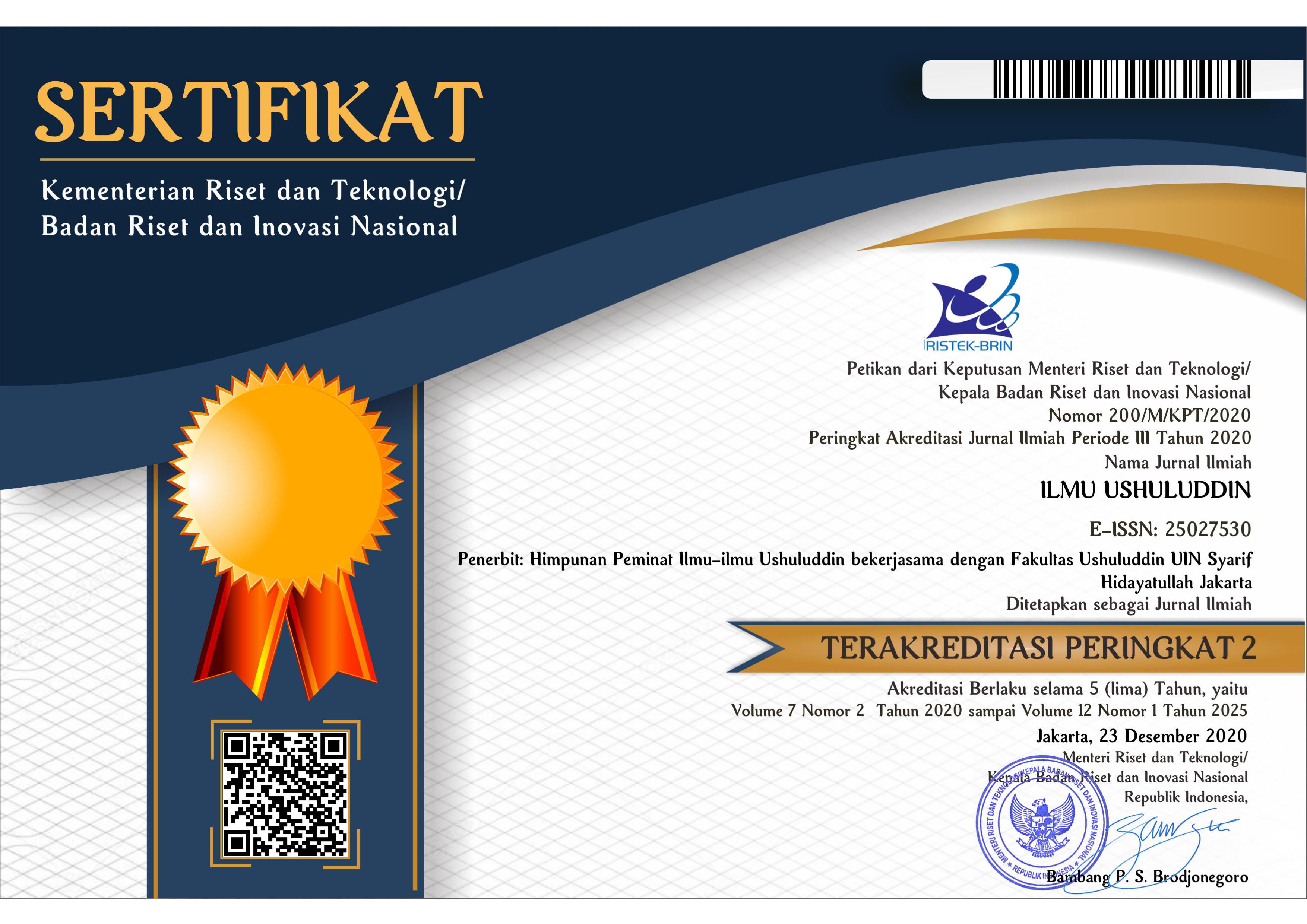Kesatuan Transenden Agama-Agama dalam Pandangan Ibn ‘Arabī
DOI:
https://doi.org/10.15408/ilmu-ushuluddin.v1i3.1012Abstract
This article explains that Ibn ‘Arabī professed the transcendent unity of religions which is shown by the data on unity of essence, unity of the divinity, unity of source or origin of the path, unity of source of the scriptures, unity of purpose of worship, and the Religion of Love. This study finding shows in a strong way that the unity of religions lies in the transcendent or esoteric territory, i.e. it goes beyond formal religious forms such as religious law, sharī‘ah, doctrine and ritual. On the historical forms of religion there are many differences and even conflicts one each other. Though different in form, these differences among religions are not absolute, independent and separate, but bounded by a single entity, i.e. both from God Almighty, and will culminate in Him as well. However, on the historical form Ibn ‘Arabī claimed the perfection of Islam, and simoultaneusly criticized the religion and non-Islamic beliefs. This last fact has been ignored by the scholars, both Islam and the West, who believe the theory of the transcendent unity of religions.


